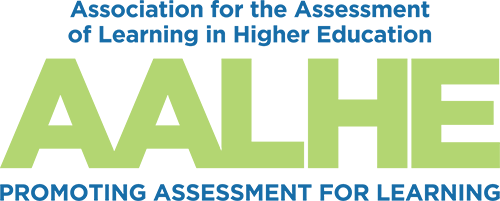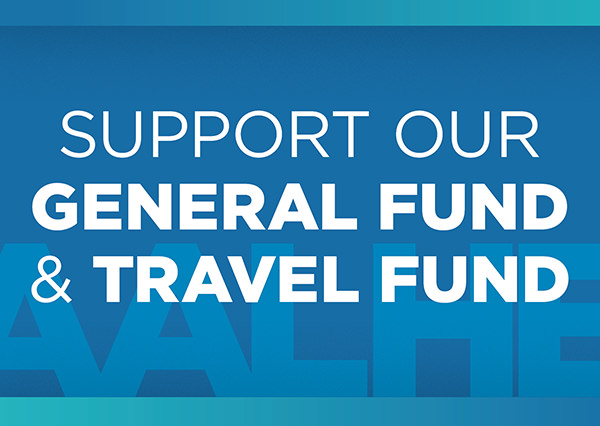- Home
- About AALHE
- Board of Directors
- Committees
- Guiding Documents
- Legal Information
- Organizational Chart
- Our Institutional Partners
- Membership Benefits
- Member Spotlight
- Contact Us
- Member Home
- Symposium
- Annual Conference
- Resources
- Publications
- Donate
EMERGING DIALOGUES IN ASSESSMENTILOs for the Next 150 Years
November 3, 2025
AbstractColorado State University has recently adopted a new set of institutional learning objectives (ILOs). This is the story of how the ILOs were developed in two distinct phases, resulting in a set of ILOs that are aspirational, enduring, and that distinguish the CSU experience. An assessment approach grounded in storytelling is proposed.
Colorado State University (CSU) has recently adopted a new set of institutional learning objectives (ILOs). This is the story of how the ILOs were developed in two distinct phases, resulting in a set of ILOs that are aspirational, enduring, and that distinguish the CSU experience. An assessment approach grounded in storytelling is proposed. CSU recently celebrated 150 years as the state’s land-grant institution. Looking to the next 150 years, the institution has been highlighting the ways in which a CSU education has been the foundation for the careers of innovators and leaders in government, business, and education (Parsons, 2024-present). The dynamic graduates who are showcased represent the array of educational opportunities that CSU offers, and their stories provided the motivation to craft a set of ILOs that will inspire the next 150 years. With this view towards the future, CSU recently adopted a new set of ILOs that emphasize hope, wisdom, and community well-being, but this was not the first attempt at the task. The story of CSU’s ILOs began in 2017 and unfolded in two distinct phases. This essay is the story of how the ILOs evolved, where we are now, and where we hope to go next. Chapter One: The First ILOsThe first chapter of this story began in fall 2017, when the Provost formed a task force to create CSU’s initial set of ILOs, following a recommendation from the Higher Learning Commission, the institution’s accreditor. The task force included faculty and student affairs representatives and sought to address the questions: “What is the aim of the CSU educational experience?” and “What is distinctive about the CSU educational experience?” Colleges and universities typically adopt ILOs that articulate the knowledge, skills, and attitudes that students should expect to learn by graduation. ILOs should align with the mission and aims of the institution and represent both academic and co-curricular experiences, thus supporting the development of the whole student. It was this framework that guided the 2017 task force to develop the following ILOs: Creativity, Reasoning, Communication, Responsibility, and Collaboration. The task force provided a rationale and broad definitions for each ILO, allowing for flexibility and integration throughout the core curriculum and disciplinary programs. The task force gathered feedback from groups across campus and presented the final report to the faculty council in November 2019 (CoTL Task Force, 2019). The chair of the task force acknowledged that it would require a lot of effort to implement the ILOs into the curriculum planning processes, and that there would be more discussion at a future faculty council meeting, along with putting the proposed ILOs up for a vote. Unfortunately, this chapter was cut short by the Covid-19 pandemic that halted so many initiatives on our campuses beginning in February/March 2020. No vote was called, and the ILOs were lost to the emergency of the pandemic and the leadership transitions over the subsequent four years. Chapter Two: Distinctive ILOsIn fall 2023, the conversation was renewed when the Academic Assessment Council reviewed the proposed ILOs and determined that they were not comfortable moving forward with an assessment plan until the ILOs had been approved by the CSU Faculty Council. Additionally, there were concerns that the ILOs did not demonstrate what was unique about the CSU educational experience and therefore could be improved. With agreement from the Faculty Council, the Provost launched a new task force to revise the ILOs using a different approach. This time, the ILOs should be crafted to distinguish the CSU experience from what students could expect to learn at a comparable university. The focus should be on what we promote most fiercely: democracy, sustainability, community, and inclusion topped the list. Intellectual skills like critical thinking, communication, quantitative reasoning, and collaborative problem-solving are crucial to a university education, but are not special to CSU and thus do not contribute to a unique institutional identity. Chaired by a pair of faculty/administrators, the second task force comprised faculty and representatives from key student-serving offices. To create a shared understanding of our task, we began with a presentation about ILOs: what they are, how they are used, and how they might be assessed. The challenge to the task force was this: “How can CSU be authentic and innovative with institutional learning objectives?” The task force then participated in a series of thought exercises to explore how CSU’s mission, goals, and values might be translated into a set of ILOs that could be aspirational, have widespread support, and endure for years to come. Over the next six months, the task force reviewed ILOs from many institutions, including public land-grant institutions, regional colleges, and small private institutions with specialized missions. The group used key institutional documents like the academic master plan, the core curriculum’s learning outcomes, and career competencies to identify strengths and unique characteristics of a CSU education. These exercises resulted in multiple versions of ILOs, including a few playful experiments with generative artificial intelligence! Through the many versions and conversations, a few themes recurred, and we became confident that we had found our new ILOs. After a final review and some edits from the Provost and executive committee of the faculty council, the following ILOs were presented to the faculty council in April and earned the vote on May 6, 2025. Leading with integrity, CSU graduates will: Champion Sustainability: Develop and implement sustainable practices that broadly promote the health and resilience of our communities. Understand Our History and Heritage: Recognize and integrate the varied and complex histories and traditions that shape Colorado, our nation, and our world. Strive Towards Collective Wisdom: Appreciate that meaningful progress comes from shared understanding, sustained partnerships, and reciprocal learning. Engage in Civic Life: Work to preserve and enhance democratic process and freedoms, embracing leadership roles that contribute to social well-being. Advance Knowledge: Contribute to the creation and dissemination of knowledge that promotes innovation, creativity, and addresses humanity’s shared challenges. The Next Chapter—Implementation and Assessment We understand that ILOs are meant to provide a visible framework for program development and assessment of learning outcomes and student success, but little is written about how ILOs are actually used at large institutions. The task force began its work with the following assumptions of how the ILOs could be implemented for use on our campus:
The task force recognizes that much needs to be done to integrate the ILOs into the campus culture and recommended that an implementation team be formed for this purpose. From the creation and initial gathering of the second task force, it was apparent that “how we would assess” the ILOs was a barrier that limited the visioning process and caused some anxiety for faculty. By giving them permission to not think about assessment and embrace the notion of storytelling, the task force members were able to let go of their concerns and focus on those ideals that would move the process forward. Storytelling is not new as an approach to assessment, but it is a particularly apt approach for assessing ILOs (Jankowski, 2021). Operating on the assumption that measuring performance through data and metrics is only one element of a good assessment strategy, we believe that assessment can also be used for bringing the university community together and creating a shared understanding of our purpose and impact. Evidence-based storytelling can help us do that by making connections to evidence through reflection and the sharing of meaningful stories about learning and growth (Jankowski, 2021). Inviting multiple narrators—students, faculty, staff, administrators, community members—can help make deeper meaning of experiences and create a shared sense of ownership of the educational experience and all that our students do with their time at CSU and beyond. The next 150 years seem so far away and yet the decisions we make now can shape and inspire that future. We may not have the perfect ILOs or the cleanest assessment metrics, but these intentional and regular conversations can build and maintain the community that will write the stories that folks will be telling for years to come. ReferencesCoTL Task Force on Institutional Learning Objectives. (2019, November). Institutional Learning Objectives. CSU. https://green.colostate.edu/wp-content/uploads/sites/17/2020/02/CSU_Institutional_Learning_Outcomes.pdf Jankowski, N. (2021, January). Evidence-based storytelling in assessment. (Occasional Paper No. 50). Urbana, IL: University of Illinois and Indiana University, National Institute for Learning Outcomes Assessment. Parsons, A. (Host). (2024-present). The Next 150 with President Parsons. [Audio podcast]. CSU. https://president.colostate.edu/podcast/ |


